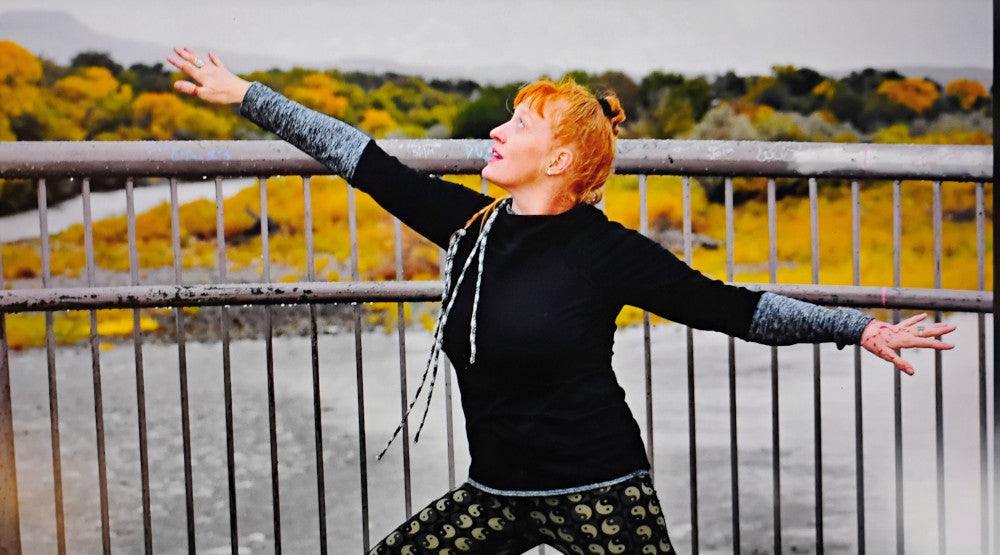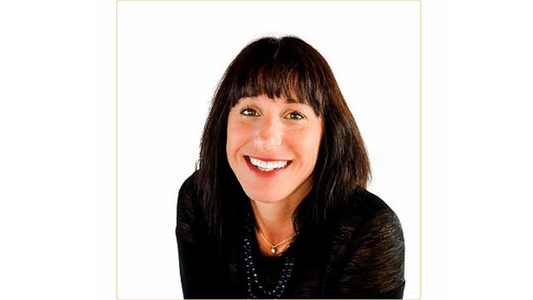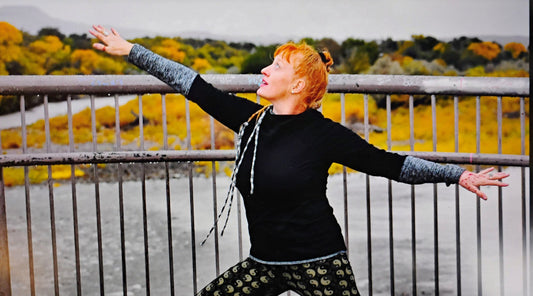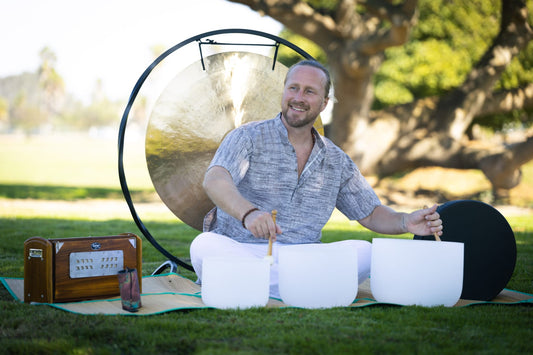
Yoga Teacher Spotlight: Chessie Woodruff
Share
Chessie Woodruff’s yoga journey began in a warehouse dojo in Oregon and deepened through her time studying in India. A practitioner of Hatha, Vinyasa, and Restorative yoga, Chessie blends ayurveda, reiki, and mantra into her practice. Her path is rooted in compassion, curiosity, and continual learning—each class is a drop of sweetness along a lifelong path of healing and insight.

Chessie Woodruff
Location: Grand Junction, Colorado
Studio/Affiliation: Bhakti House Yoga Studio
Types of Yoga: Hatha Yoga, Vinyasa Yoga, Restorative Yoga
Yoga Certifications: RYT 500
Yoga Teacher Spotlight
What’s your most vivid memory from your first yoga class, either as a student or a teacher?
"When I was nineteen and in college at the University of Oregon, I went to a hatha class at a local dojo housed in a warehouse. The room was filled with at least 30 other dedicated practitioners. I remember a strong, red, grounding hue cast from the carpet on the floor, and that stirred a warm, exciting impulse in me. The teacher, an older gentleman with a white beard led the very focused students through the practice. I delighted in that he named each asana in layman's terms as well as the Sanskrit titles. I remember my classmates deep in concentration as they breathed and moved proficiently. Witnessing an inclusive, spiritual community where members were seen and responded to with kindness and compassion made a lasting impression on me."
What’s the most rewarding part of being a yoga teacher for you?
"The most rewarding part of being a yoga teacher is all the drops of sugar water along the way. Each drop of sugar water is akin to an insight, a learning, or a gaining of wisdom. I have a thirst for this sugar water, and drop by drop, in teaching I am led onward in my thirst and am able to be sustained by droplets of sugar water or knowledge. I gain this along the way through observation and practice with myself and others. It's a constant learning practice, and the more you teach, the more you practice and continue to deepen your understanding."
What does yoga mean to you beyond the physical practice?
"It's hard for me to think of yoga without linking it to ayurveda because of the time I spent in India, studying the two together. They are considered sister sciences, and there is an art to applying these ancient sciences.
When people find out I practice yoga, a common response is, "Oh, that must be why you seem to be in good shape". Although yoga continues to help strengthen, and tone my body and make it more flexible, the deepest benefits are those more easily overlooked: the benefits to my mental health and overall wellbeing! Yoga has been a huge tool in helping me cope with anxiety and depression. I continue to use the breathing and movement techniques of yoga to center and ground myself, especially when passing through trying times.
I practice reiki, and so my practice is heavily informed with the body/energy connection. My time in India fortified my vitality and I attribute what I learned there to allowing me to pass through personal crises and tragedies, to overcome these trying times in order to experience joy again."
What’s your go-to mantra or yoga philosophy principle, and why?
"It's hard to narrow it down to just one, because there are so many that have touched my heart, empowered, or sweetened me. I suppose I would have to say my favorite mantra is one for Dhanwantari, the Ayruvedic deva, or celestial being, the Lord of Healing. I was initiated into this mantra in Kerala, India in 2015. This mantra respectfully salutes Lord Dhanwantari, and recognizes the gifts that he bestows, such as relief from fear, disease, suffering, fear of death and aging. We humbly request his medicines and grace so that we may venture forth in our own healing and heal others.
Also, I have personal sentimental attachment to this chant because at the time when I first learned it, my daughter was three. I would sing it to her. The first word is "Namaami." To her, that sounded a lot like "Mommy." She would request the Mommy chant around that time."
What’s a key lesson you’ve learned from teaching yoga?
"To never assume that I have the answer. To continually be open to receive insight and maintain an attitude of curiosity about present circumstances.
I learn from my students each time that I teach, simply from observing their experiences. Yoga reminds me that this deepening, this deepening of awareness and experience is always available to all of us."
What’s your vision for the future of your yoga teaching and practice?
"Although expansion into virtual services is inevitable and has its value, there is really no substitute for hands on experience. My hope is that yoga will still continue to be practiced and experienced through direct experience in real time, either one-on-one or in small, personal groups. as a social network, or community. The aspect of community, or "satsang;" (the idea of a gathering of likeminded people for similar shared purpose) can be very uplifting and powerful."
Additional Photos













